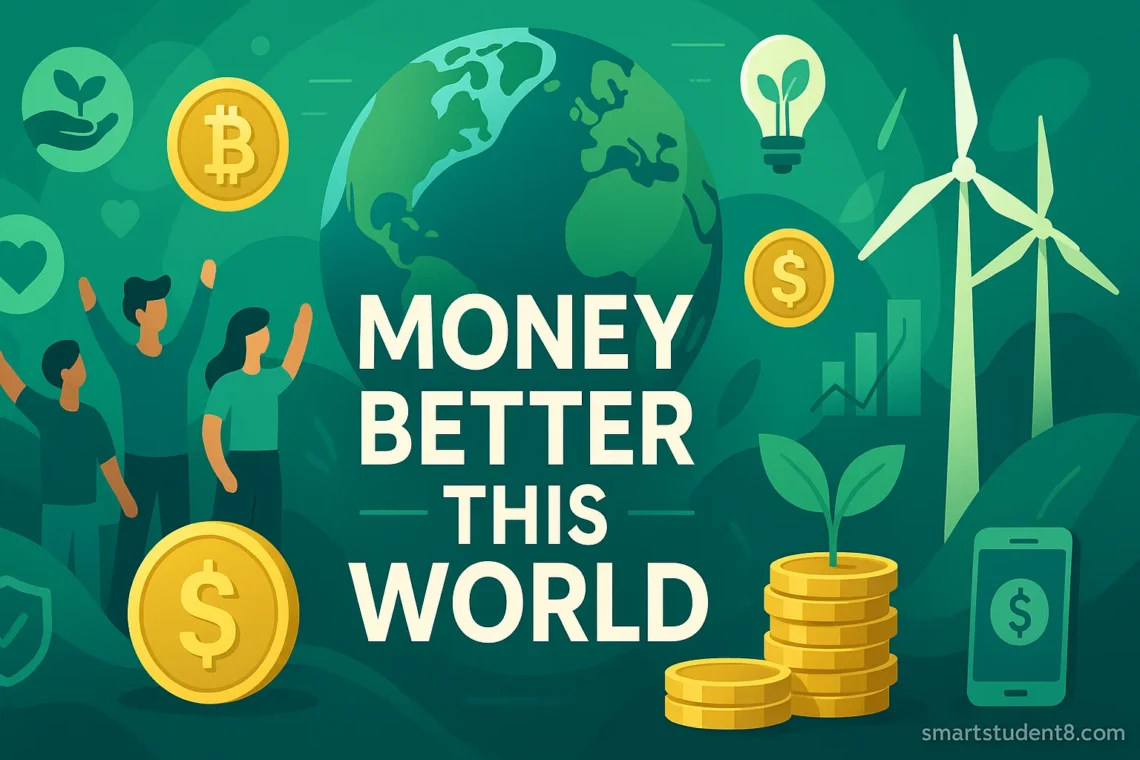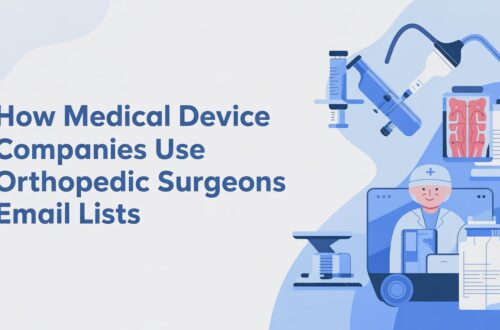Imagine using every dollar that you spend, save, or invest to make the planet a little bit better. Money BetterThisWorld, a new movement that is growing in popularity, has a core philosophy of making the world a better place with every dollar you spend. Too long, finance was viewed from a narrow perspective of personal gain, profit, and accumulation at any cost. A new mindset is emerging that views money as not the end-all goal, but a powerful instrument for positive change. The goal is to align our financial choices with our core values and transform simple transactions into meaningful impacts that are beneficial for both society as well as planet.
I have seen this change first-hand in my journey of personal finance. As many other people do, I focused my initial efforts on budgeting and saving for retirement. I was very self-centered. Over time, I became aware that my choices in financial matters had an impact. My financial choices, my investments, and even the small businesses I supported in the community all had a greater impact on the economy. My perspective changed fundamentally after this realization. What can I do with my money to support sustainability? How can money empower communities? How can the government fund innovations that address real-world issues? This article takes a deeper look into this philosophy. In this article, we will look at how rethinking the relationship between money and happiness can lead us to a brighter future in which wealth is intrinsically tied to well-being, creating an environment that’s not only richer but better for all.
Redefining Wealth: How does ‘BetterThisWorld’ affect money?
Money BetterThisWorld challenges wealth in its traditional one-dimensional form. Wealth has historically been defined almost exclusively by numbers. This includes the size and value of your bank account or stock portfolio. Although these numbers are important to achieving financial safety, they do not tell the whole story. The value in our lives is not taken into consideration, nor are the communities’ health or long-term sustainability. According to this new philosophy, true wealth can be multidimensional. This includes not only financial stability but also social equity and environmental health. The goal is to consciously shift from a mentality of scarcity and competitiveness towards one of abundance and collaboration.
This paradigm shift helps us view money as energy, a stream that we can use to extract or create value in the world. If money is only used to extract value, this can result in negative consequences, like environmental degradation and social inequality. It also leads to the exploitation of workers. It becomes powerfully regenerative when directed towards creating holistic values. The money can go to renewable energy projects that combat climate change, small businesses that pay a living wage, or medical advancements that save lives. Money BetterThisWorld is a movement that encourages people to consciously choose to take part in a regenerative, sustainable economy where success financially and impact globally are not mutually incompatible but, rather, the same. Every financial decision is an expression of the world that we desire.
Conscious Capitalism – Moving Beyond Profit
Milton Friedman has championed the economic theory that says a company is responsible for maximizing profits. It is undeniable that this model has created incredible wealth and has driven amazing innovation. However, it has also come with a cost for society and the planet. If profit is all that counts, then corners will be cut. Some companies might choose to pollute rivers in an effort to cut waste disposal costs. Others may underpay employees to improve their quarterly profit margins. It creates an unsustainable system in which the environment and public are frequently forced to shoulder the costs hidden by corporate profit. The short-term mindset that it fosters prioritizes the immediate gain over sustainability in the long term and basic human well-being. Money BetterThisWorld aims to create a system like this, one that integrates profit seamlessly with an overall purpose, without eradicating it.
Conscious capitalism is becoming a popular alternative to the traditional model. In this enlightened framework, businesses are encouraged to serve their entire stakeholder base, including their customers, employees, suppliers, and community. Adopting a holistic approach helps companies achieve sustainable and resilient success. For example, an organization that makes generous investments in its employees’ well-being, professional development, and retention will see increased productivity and innovation. If a business commits to ethical sourcing and sustainable materials, it may gain a base of loyal customers who are environmentally aware. This model is based on the idea that profit should not be the primary goal, but rather the outcome of a business’s efforts to create value. The alignment between profit and purpose, which embeds positive effects directly in the engine of the economy, is the cornerstone for using money to improve the world.
Empowerment begins with financial literacy.
Money is a powerful force that can be used for good, but if we don’t know how it works, then this will not work. Money BetterThisWorld’s movement is based on financial literacy. Financial powerlessness is the result of a lack of understanding of core financial concepts, such as saving, budgeting, and managing debt. They are reactive instead of proactive and fall victim to predatory loan schemes, credit card debt with high interest rates, or poor financial planning. The result is that they live in constant financial distress, incapable of thinking beyond the needs of their next paycheck. The financial education program breaks the cycle. This education provides the skills and knowledge people need to be in control of their own economic destiny.
It is crucial to empower yourself in order to make conscious, impactful decisions about your finances. When a person reaches a base level of stability financially, by creating an effective budget, developing an emergency fund, or developing a debt management strategy, they gain mental and financial freedom. You can begin to ask yourself important questions, such as where your money is being spent and how it impacts the world. In my experience, learning how to handle my own money was the best skill I’ve ever gained. The biggest benefit was not just that I didn’t have to be concerned about unexpected expenses; the most profound part of it all was realizing my agency. The choice was mine. I could save money for an important goal, make investments in my future, or donate to a cause that I strongly believe in. The incredible power of financial literacy is unlocked. This transforms people from being passive consumers to becoming active, engaged, and capable participants in the economic system.
Sustainable Investments and the Environment: How to Put your money to work
The most effective and direct way to get involved in Money BetterThisWorld is by investing sustainably. Socially responsible investment (SRI) and ESG (Environmental, Social, and Governance), also called ESG, is an approach that involves directing capital to companies actively working on solving critical social and environment problems. The idea that ethical investing means giving up financial gains is outdated. The evidence is growing that companies that have strong ESG policies are more innovative and resilient. They also tend to achieve sustainable long-term growth. Inherently, they are more protected from risks such as consumer boycotts and environmental disasters.
My first experience with sustainable investment is still clear in my mind. As with many investors, my initial concern was that I would have to accept lower returns. I was reluctant to depart from my traditional strategy of a portfolio based mainly on a broad-market index fund. When I began my research, I learned that there were many investment opportunities aligned to my personal values, without forcing me to compromise my financial objectives. Funds that were solely focused on investing in renewable energy companies and firms that had a strong diversity of gender in the leadership positions, as well as funds that specifically screened out industries like weapons, tobacco, and fossil fuels, became available to me. It was a powerful moment when I made that change in my portfolio. My financial future was aligned with my vision for the future of the world. I realized that my investments represented more than just abstract numbers. They also represented an actual stake in creating a world with greater sustainability and equity.
Digital Currencies in the Future: Decentralized
It would be impossible to have a modern conversation on the future of money without mentioning the revolution that digital currencies, and DeFi (decentralized finance) in general, have brought about. The blockchain is fundamentally changing our traditional, centralised financial systems. Bitcoin and Ethereum are cryptocurrencies that allow you to send money directly from one party to another, no matter where they may be in the world. You don’t need a middleman or a bank. The implications of this are profound for financial inclusion. The billions who are still unbanked could gain unprecedented access to the global market with just an ordinary smartphone and a connection to the internet.
It can bring new transparency to the financial world. As blockchain is basically a distributed and immutable ledger, it can track the money flow with high accuracy. Imagine that you could track a charitable gift from the time it leaves your wallet to its final recipient. You would be able to ensure that all money donated was spent as planned. Consider a global supply network whereby consumers can verify instantly that an item is ethically sourced simply by scanning a QR Code. These incredible possibilities have been revealed to me by my experiments with digital currencies. Although the market is volatile and evolving rapidly, the underlying technologies offer a glimpse at a financial future that is open, transparent, and available to everyone. Money BetterThisWorld has a new, powerful tool that allows you to rebuild financial systems.
People-driven community funding: The power is in the people
A second exciting development is the rise of the community-driven financing models, such as crowdfunding and peer-to-peer (P2P). Innovative platforms like these use the unmatched power of the internet to link people in need with those willing to lend them money, eliminating the financial gatekeepers that are banks and venture-capital firms. The internet has made it possible for artists, entrepreneurs, and social innovators around the world to fund their ventures with support directly from their local communities. Money BetterThisWorld’s philosophy is put into action in this powerful and real-world case study, which allows users to direct funds to their favorite projects, businesses, or causes.
The risk-averse and profit-driven traditional financial world would not have funded countless creative products, independent films, or innovative projects. P2P lending sites allow users to lend to small business owners or other people directly, and often offer better interest rates. The new models, such as community investment funds, allow residents to pool their money and invest in small businesses. They can also create wealth within the community. These sites have allowed me to personally support several projects, from a film about sustainable farming to a company that produces durable backpacks made from ocean waste. You can’t imagine how rewarding it is to witness a project come to life that you are passionate about, especially when your little contribution was instrumental in its success.
Achieving Ethical Finance Everyday: Simple Choices with Big Impact
Money BetterThisWorld’s philosophy has an impact on every aspect of our financial lives. While strategic investing and financing large projects are key components to this movement, it is also relevant for everyday finances. You vote with every dollar you spend. The small choices we make every day, no matter how insignificant they may seem at first glance, can accumulate to have an enormous impact on our collective future. This is about being a conscientious consumer. It means consciously directing spending to companies and practices aligned with your own values. You could buy your coffee in a local independent café instead of at a multinational chain. You might also choose to support brands with fair labor practices or purchase recycled products.
It doesn’t require you to reach perfection in a day. It’s progress and not perfection that matters. Make one or a few small and manageable adjustments to begin. Perhaps you decide to switch from a clothing brand that uses cotton to one made with organic materials, or to buy fresh vegetables every week at your local farmer’s market. My first step was to look at my monthly bank statements and identify my top five expenses. After identifying my top five recurring expenses, I looked for a sustainable, ethical, or local alternative. I was able to use this simple tool to make a switch in my household’s energy provider. It now uses only renewable energy. And, my savings account has been moved from a national bank to an independent credit union. This was a relatively minor change, but it made me more confident and in control of my financial situation.
Do You Have a Personal Finance Philosophy?
Money BetterThisWorld’s philosophy is deeply personal and not just a set of rigid rules. This is about reflecting on your values to find practical and creative ways of aligning your finances with your personal goals. What matters most to you? Which issues are most important to you? After you’ve identified your core values, you can begin building a personal finance plan that actively reflects those values. There is no right or wrong way to go about this journey. You need to find what speaks to you, and then integrate it into your daily life.
I wrote a statement of my financial personal mission. The document was one page and outlined the long-term financial objectives I had, as well as my values to guide me. This document included specific commitments like investing a percentage of the portfolio in sustainable funds or banking only with local credit unions. The document is a great guide. The document has helped me remain focused on my values and long-term goals. The system turns abstract values into concrete financial action.
Read More: Save money with Money6x.com
Conclusion: Making Your Money Mean Something
We are experiencing a major shift in how we view money. Our world is moving steadily away from one where money was the sole measure of success to one where purpose and impact are equally important. Money BetterThisWorld represents this shift in global consciousness. The Money BetterThisWorld movement is a call to action that encourages us all to take responsibility for our own financial decisions. We must use these powers with compassion, intelligence, and intention. This book is all about changing money from an anxiety-producing source into one that empowers and creates positive change.
It begins by educating yourself to gain the knowledge and confidence needed to control your financial life. This journey expands to conscious consumption, where your purchases are used to help businesses do good around the world. This evolves into sustainable investment, where your capital is put to use to create the future you envision. It is also being supercharged with new technologies, a community-driven model, which makes finance more accessible, democratic, and transparent than ever. In the end, money is neutral. The intention is what gives money its power. You can infuse positivity into your finances by adopting the Money BetterThisWorld philosophy. Your choice is to create not just your wealth, but also an impactful legacy. Choose to give your money a purpose. By doing this, you are actively participating in the creation of a just, sustainable, and prosperous future for everyone.





